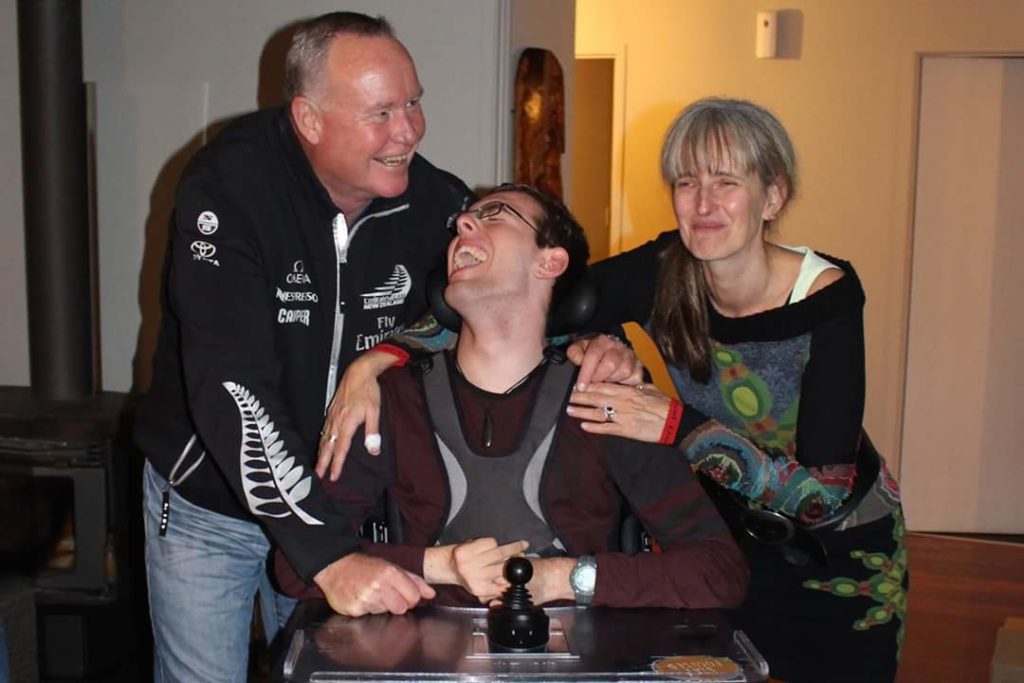#CarersCount – In an Ideal World, by Franky Lewis
#CarersCount – Election 2017
In an ideal world, family supporters are valued and receive the support they need to continue to provide support to their disabled family member. Note the use of the word ‘supporter’ rather than ‘carer’, which often feels like a euphemism, especially in the dead of the night when I get up for the umpteenth time to attend to my son. Not that I don’t care but caring has connotations of love, compassion, empathy, … values from the heart, which have little to do with the support, we parents, provide 24/7.
Yet being valued for the support we give and for our contribution to society remains unrecognised by those in the position to effect changes. We still have to endlessly fight to survive while providing disability support 24/7, natural support (as they call it) while trying at the same time to earn a living (when?), look after ourselves and stay sane in an environment that drives the less resilient of us insane. Pursuing a career is not an option, unless you guiltily decide to ‘abandon’ your loved one in the dangerous hands of a residential care facility, anguishing about all the stories of abuse you know others have gone through.
Despite some minor changes in the attitude of officials and maybe a relaxing in the way funding can be accessed, family supporters are still viewed as natural support and therefore receiving … well, no support.
Even when we act as employers, as in the case of Individualised Funding (IF), we are still not allowed any payment/compensation to perform the duties of employment, nor any training to become a good employer, as I recently discovered when I sought to enrol to study one of the certificate in Health and Wellbeing, which gives my staff the legal right under the new Pay Equity legislation to be paid 50% more than what I get paid under the Family Funded Care policy FFC. What I consider an employment cost is simply not authorised under my son’s IF budget, simply because I am his mother (albeit his IF agent).
Discrimination? Let’s now broach the matter of the Family Funded Care, which came into being following the NZ Public Health and Disability Amendment Bill (2) rushed before Parliament in May 2013, which at first view seems to give some of us the right to be paid as family ‘carers’ but which in fact on closer view reaffirms the Ministry of Health’s strict prohibition to pay family carers, unless discriminatory criteria spelled out in their policy are met.
Enumerating all the wrongs of that policy would be an endless subject. Suffice to say that it discriminates on many grounds:
- minimum hourly rate (it was also excluded from the recent negotiations in the Pay Equity legislation),
- maximum of 40 hours a week (we work 168 hours a week and sometimes that includes two parents),
- spouses are excluded as well as
- disabled people under 18 years of age.
Other issues are for example:
- the policy forces disabled children to become the employer of their parent, who often is their legal guardian!
- a lot of parents are solo parents (not many marriages survive the difficulties to navigate a fraught support system) and therefore rely on a benefit. Receiving payment under FFC often affects their benefit as well as their entitlement with Housing NZ.
- the allocation comes out of the total disability support package that already factors parents as natural support so it reduces the package considerably and therefore puts parents at risk of further burnouts.
“I get concerned for carer burnout due to FFC hours taken from the assessed need after natural support has already been taken into consideration.
Just really think it’s dangerous for everyone if there’s not enough home community support/respite put alongside.”
(Respondent in a consulted Facebook group)
And if this was not enough, families have been struggling for years without adequate respite. The Ministry’s recently released Respite Strategy takes a step in the right direction, allowing for more flexibility and adhering to family centred governance principles but its premise remains the same antiquated view which forms the basis of all MoH policies (and which was fought in Court for many years by some brave families) and therefore falls short of addressing the real issue: the care we provide is natural support.
“Respite is an investment in protecting the health and wellbeing of the family/whānau and helps them to continue in their caring role.”
(Transforming Respite, Overview, p7)
So where to from here?
The Ministry is working on transforming the disability support system, with what is called their New Model and, more practically, one of its application Enabling Good Lives. As New Zealand is quite often at the forefront of the world when it comes to leading changes, one may hope that the new leaders chosen at next elections will be guided to finally take action in answering the call for help from the many New Zealanders who support their disabled family member who do it “just for love”, without any support from a government that consistently, systematically and blatantly breaches their Human Rights.
Franky Lewis, blogger
You can find me on Facebook in the following groups:
FFC-NZ: for recipients of Family Funded Care payments or those who would like to know more about the FFC
IFUNZ: for IF agents only
ICYC NZ (I Care You Care): for people supporting someone else
